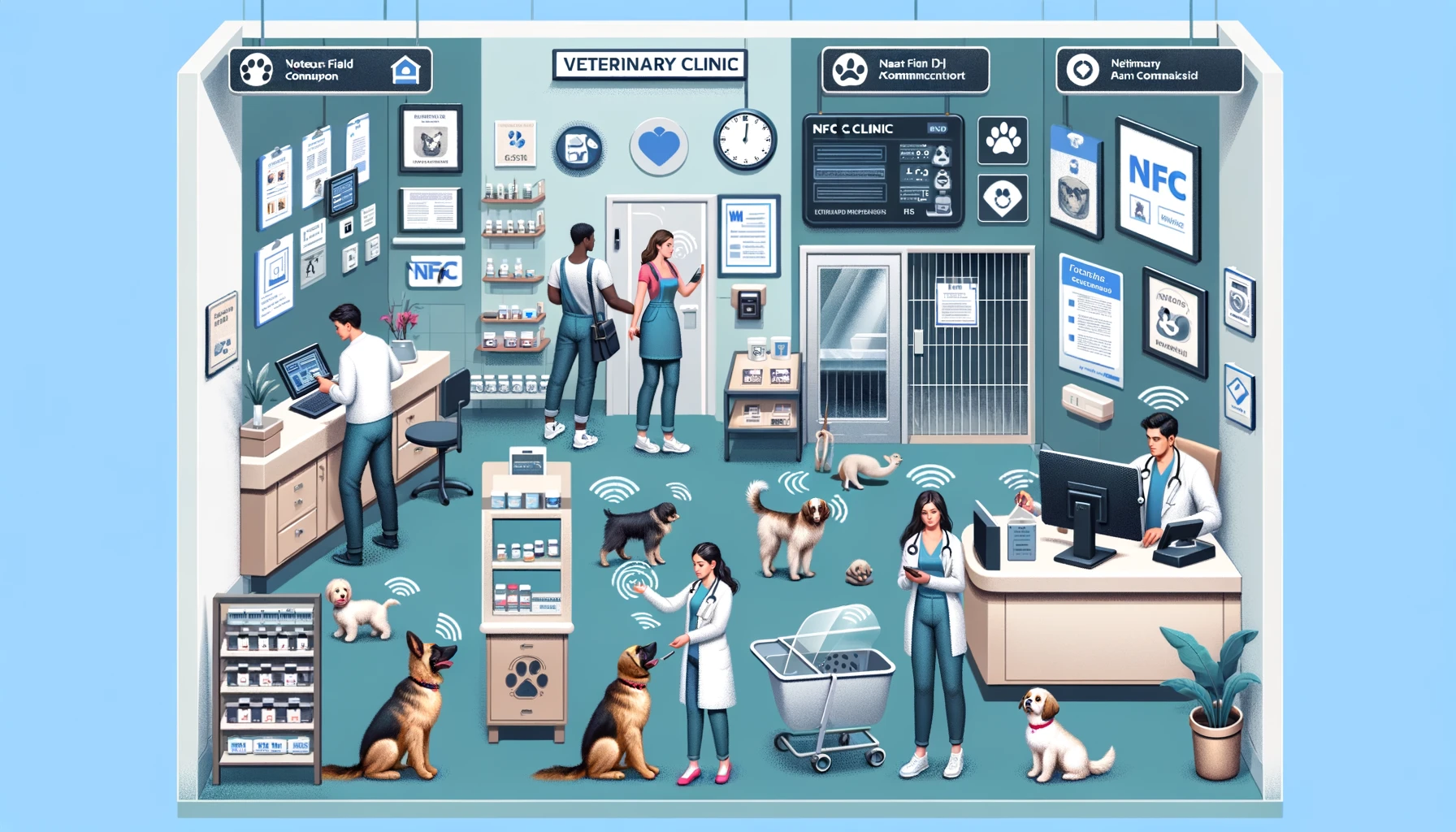
Section 1: Understanding NFC in Veterinary Services
What is NFC?
NFC, a form of short-range wireless communication, is known for its use in contactless payments and data exchange. Its application in veterinary services offers a new dimension of care and management for animals.
NFC's Role in Animal Care
NFC technology in veterinary services enables:
- Electronic Identification: Embedding NFC tags in animal collars or microchips for easy identification and medical history access.
- Health Monitoring: Facilitating the tracking of an animal's health parameters and medical history.
Section 2: Benefits of NFC in Veterinary and Animal Care
Enhanced Animal Identification
- Quick Access to Medical Records: Vets can instantly access an animal's medical history, improving the speed and accuracy of treatment.
- Lost and Found Assistance: Easier identification of lost pets and quicker reunification with owners.
Streamlined Veterinary Operations
- Efficient Record Keeping: Digital storage of medical records and vaccination histories.
- Appointment and Medication Reminders: Automated notifications for pet owners.
Improved Animal Welfare
- Consistent Monitoring: Keeping track of health metrics for preventive care.
- Emergency Readiness: Quick access to critical medical information in emergencies.
Section 3: QR Lab’s NFC Solutions in Veterinary and Animal Care
Tailoring NFC for Veterinary Use
QR Lab offers customized NFC solutions that cater to the unique needs of the veterinary sector, including:
- User-Friendly Pet Tags: Designing NFC-enabled tags and microchips for pets.
- Integrated Veterinary Systems: Connecting NFC technology with veterinary practice management software.
Advancing Animal Healthcare
- Innovative Tracking: Enhancing the monitoring and tracking capabilities for pets.
- Security and Privacy: Ensuring sensitive pet information is securely managed.
Conclusion
NFC technology is setting a new standard in veterinary services and animal care. With QR Lab's expertise in NFC solutions, veterinarians, pet owners, and animal caretakers can benefit from enhanced efficiency, improved animal welfare, and advanced healthcare management.
Most viewed




